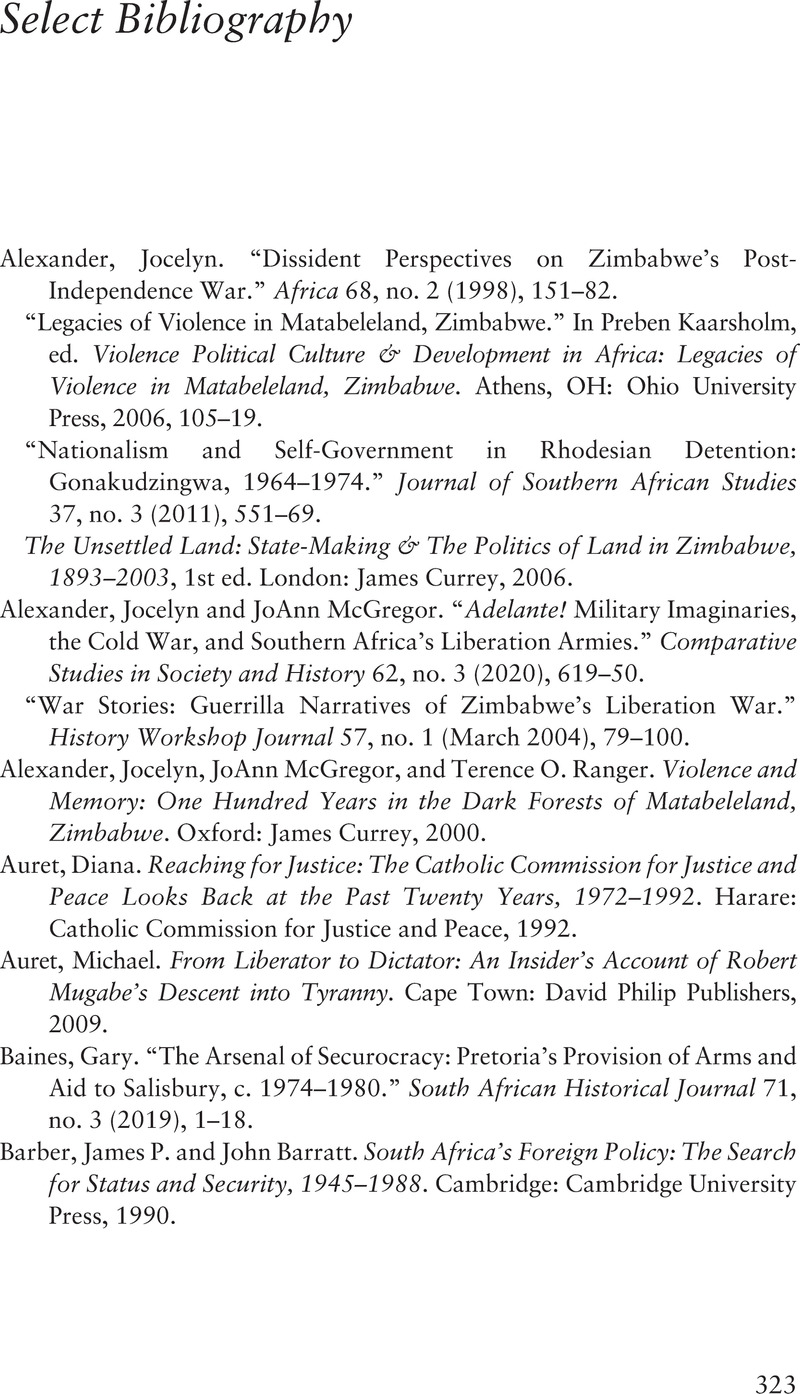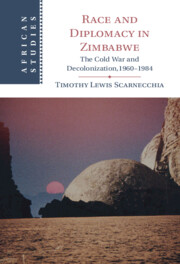Book contents
- Race and Diplomacy in Zimbabwe
- African Studies Series
- Race and Diplomacy in Zimbabwe
- Copyright page
- Contents
- Figures
- Acknowledgments
- Abbreviations
- Introduction
- 1 Historical Background
- 2 The Early 1970s
- 3 Liberation Struggles in Southern Africa
- 4 “We Don’t Give a Damn about Rhodesia”
- 5 Negotiating Independence
- 6 Negotiating Independently
- 7 The Big Gamble
- 8 The 1980 Elections and the First Years of Independence
- 9 Gukurahundi and Zimbabwe’s Place in the 1980s Cold War
- Conclusion
- Select Bibliography
- Index
- African Studies Series
- References
Select Bibliography
- Race and Diplomacy in Zimbabwe
- African Studies Series
- Race and Diplomacy in Zimbabwe
- Copyright page
- Contents
- Figures
- Acknowledgments
- Abbreviations
- Introduction
- 1 Historical Background
- 2 The Early 1970s
- 3 Liberation Struggles in Southern Africa
- 4 “We Don’t Give a Damn about Rhodesia”
- 5 Negotiating Independence
- 6 Negotiating Independently
- 7 The Big Gamble
- 8 The 1980 Elections and the First Years of Independence
- 9 Gukurahundi and Zimbabwe’s Place in the 1980s Cold War
- Conclusion
- Select Bibliography
- Index
- African Studies Series
- References
Summary

- Type
- Chapter
- Information
- Race and Diplomacy in ZimbabweThe Cold War and Decolonization,1960–1984, pp. 323 - 331Publisher: Cambridge University PressPrint publication year: 2021



